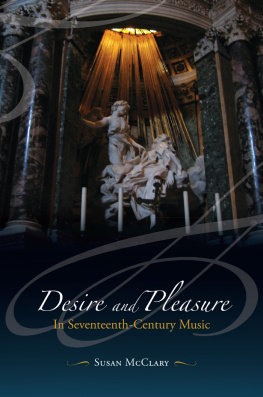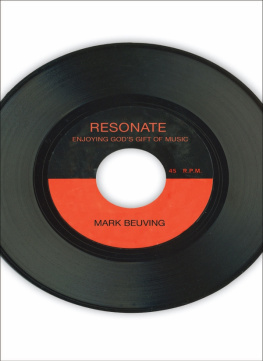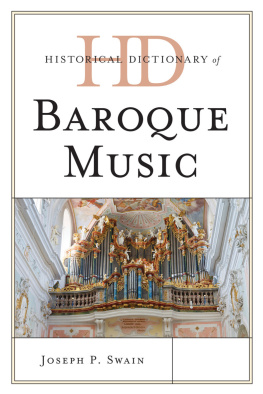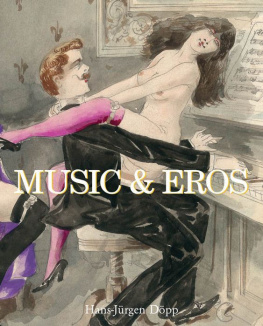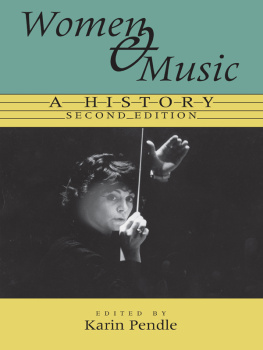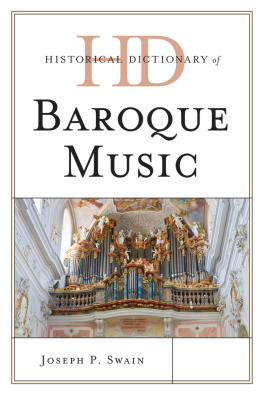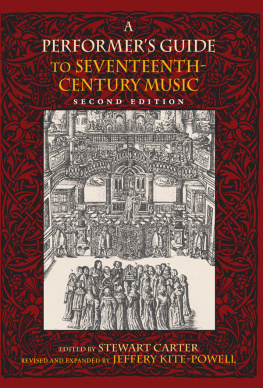Desire and Pleasure in
Seventeenth-Century Music
The publisher gratefully acknowledges the generous support
of the Sonia H. Evers Renaissance Studies Endowment Fund
of the University of California Press Foundation.
Desire and Pleasure in
Seventeenth-Century Music
Susan McClary

UNIVERSITY OF CALIFORNIA PRESS
Berkeley Los Angeles London
University of California Press, one of the most
distinguished university presses in the United States,
enriches lives around the world by advancing
scholarship in the humanities, social sciences,
and natural sciences. Its activities are supported
by the UC Press Foundation and by philanthropic
contributions from individuals and institutions.
For more information, visit www.ucpress.edu.
University of California Press
Berkeley and Los Angeles, California
University of California Press, Ltd.
London, England
2012 by The Regents of the University of California
Library of Congress Cataloging-in-Publication Data
McClary, Susan.
Desire and pleasure in seventeenth-century music /
Susan McClary.
p. cm.
Includes bibliographical references and index.
isbn 9780-520-24734-5 (cloth : alk. paper)
1. Music17th centuryHistory and criticism.
I. Title.
ML194.M35 2012
780.9'032dc23 2011041887
Manufactured in the United States of America
20 19 18 17 16 15 14 13 12 11
10 9 8 7 6 5 4 3 2 1
In keeping with a commitment to support environmentally
responsible and sustainable printing practices,
UC Press has printed this book on Rolland Enviro100,
a 100% post-consumer fiber paper that is FSC certified,
deinked, processed chlorine-free, and manufactured
with renewable biogas energy. It is acid-free
and EcoLogo certified.
Contents
Their world fell into disarray. An earlier generation had acted out impudently against what it had dismissed as stifling but immutable certainties. Now such certainties as they could muster had to be fabricated out of rhetorical gesture. Assurances of continuity evaporated, replaced by feeble assertions linking cause with effect, God with Man, ruler with ruled. They pinned their hopes on air by means of sound, the most ephemeral of media. But the arcs they created between agitation and delayed repose traced patterns to which they clung when all else so evidently failed. The seventeenth century sustained itself on gossamer threads of its own manufacture, a network reliant for its power on simulations of pleasure and desire. Wetheir children who still inhabit the modern world they ushered in, with all its arrogance and anxietyprefer to hear their devices as natural and universal. I understand them as smoke and mirrors, the scant comforts of a society grown too cynical for the fairy tales (scriptural or scholastic) of its forebears. This book concerns some very sophisticated whistling in the dark.
S.M.
Acknowledgments
Machaut once wrote, My end is my beginning. But in my case, the beginning turned out to be pretty nearly the end. For although the ideas that form the core of this book first appeared in my 1976 dissertation, it has taken me a full thirty-five years to develop a scholarly terrain within which these ideas might seem to make sense.
Anyone familiar with my work might find it difficult to believe that all of it stemmed from those initial inquiries into seventeenth-century musical syntax. Indeed, when I first set out to try to explain how music of the seicento works, I could never have imagined that my path would lead me through feminist theory, popular music, and a deconstruction of the European canon. But baffled by readers reports advising me to abandon this project because this music does not work, I found it necessary to figure out what precisely it might mean to say such a thing about a repertory, especially one that includes the likes of Monteverdi. If a belief in eighteenth-century tonality and its masterworks grounds our discipline, implicitly dismissing all Others (early music, womens music, postmodernist music, world music, African-American music, pop music, etc.) as unworthy of serious consideration, then that belief itself begs to be dismantled.
To be sure, no one much cared then about the no-longer-modal-not-yet-tonal repertories I deal with in this book. But plenty of people responded to the vade mecum I extended in the context of those other Others. Along the way, I gained enough gravitas to persuade University of California Press to take a chance on my latter-day formulations of my earlier ideas.
A project that has taken thirty-five years to reach fruition owes too much to too many individuals for me to name them all. Virtually all my colleagues, friends, and students have contributed to its present formulation. My late father, Dan McClary, blasted me with classical music when I was still in the crib, with the hope that I would grow up with the canon as my vernacular. I am, consequently, his Frankenstein monster.
As an undergraduate piano major at Southern Illinois University, I learned from Robert Mueller and Steven Barwick how to link scores and history with performance decisions, while Wesley Morgan instilled in me my obsession with seventeenth-century music. During my graduate training, Anthony Newcomb showed me how to teach effectively, and Earl Kim encouraged me to theorize about temporality in music. At Harvard I also met my former husband, Daniel Garber, who had to endure the period during which I was deep in the abyss of working out the theoretical models I introduced in my dissertation and now present here in somewhat more refined versions. A scholar of seventeenth-century philosophy and its quirks, Daniel helped me find ways of thinking about early modern Europe.
When Daniel moved to the University of Chicago in 1975 to take up his first job, I went along as a faculty wife. While finishing my dissertation in Chicago, I had the privilege of hanging out in Regenstein Library with a host of graduate students who have gone on to become stars in their fields and close friends, among them Bill Caplin, Peter Burkholder, Jann Pasler, Ellen Harris, and Louise Stein. I also met and worked with the late Howard Mayer Brown. Although I resented it mightily at the time, Howard gave me the much-needed kick in the pants that made me stop moping around as a faculty wife, even if the alternative was a commuting marriage. He and the late Leonard B. Meyer championed my theoretical models when few others gave them a second look.
In 1975 I met Rose Rosengard Subotnik who was just starting her career at Chicago, and it was she who first suggested that I read Adorno and Foucault, both indispensible thinkers for all my subsequent work. Together with Richard Leppert, who became my principal source of intellectual sustenance during my years at the University of Minnesota (197794), and Lawrence Kramer, we forged what we prefer to call critical musicology, better known by the name given by our detractors: New Musicology. Dissatisfied with the methods and historical narratives then dominant in musicology, we sought to find ways of opening the field. I could never have survived without their support and friendship.
At the University of Minnesota, I encountered two other groups that changed the course of my project. First, I became involved with feminist theory and criticism, which was then transforming most disciplines within the humanities and social sciences. The questions feminists were asking at the time seemed to me remarkably like those I was posing in my studies of music. I owe particular thanks to Naomi Scheman, Nancy Armstrong, and Ruth-Ellen Joeres for welcoming me into their community and helping me in my struggles to bring feminist theory into musicology. When I began presenting some of these ideas in the context of musicology venues, I found nurturance and intellectual support from Catherine Clment, Eva Rieger, Ruth Solie, Judith Tick, Ellen Koskoff, and Jane Bower.

